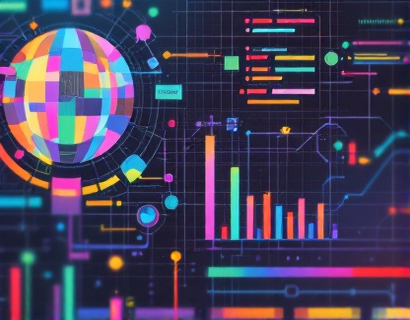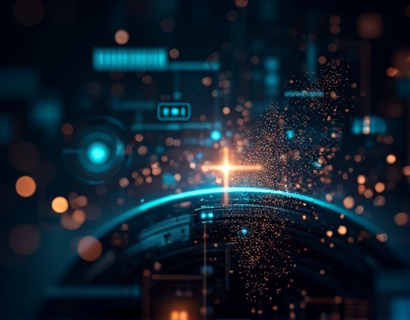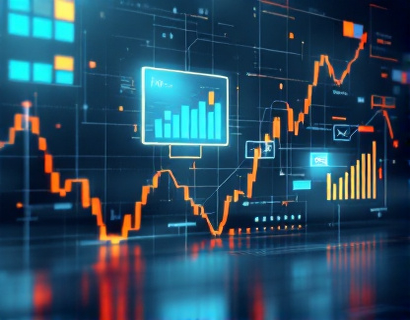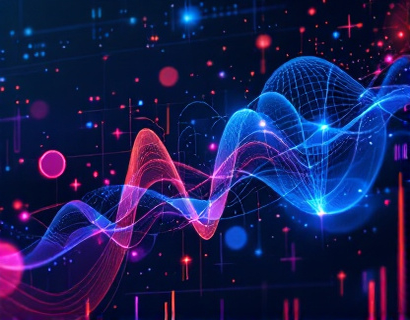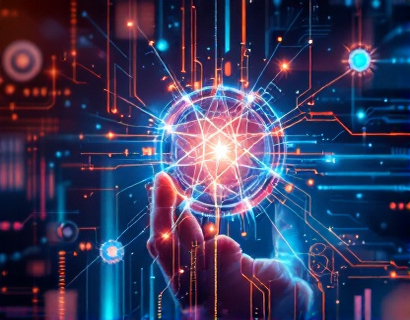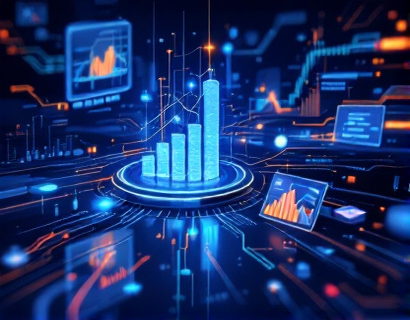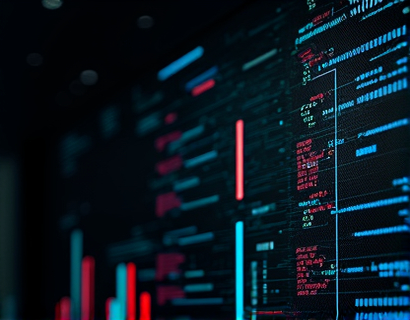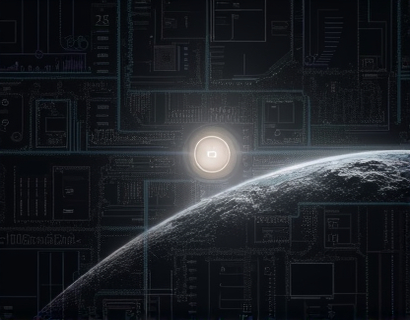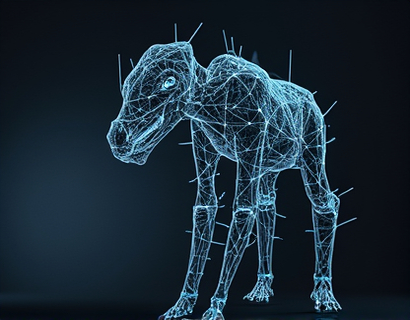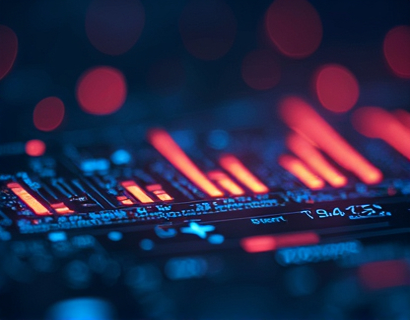Empowering Digital Transformation: The Synergy of AI and Crypto
The intersection of artificial intelligence and cryptocurrency is catalyzing a new era of digital transformation. This convergence is not just a technological curiosity but a powerful force reshaping how we interact with digital solutions. The integration of blockchain and machine learning is creating advanced tools and seamless experiences that were once the stuff of science fiction. This article explores the transformative potential of combining these two revolutionary technologies, offering insights into how they are redefining the app and service landscapes for a more innovative and user-friendly digital journey.
Understanding Blockchain and Machine Learning
To fully appreciate the impact of AI and crypto, it's essential to understand the fundamental concepts of both blockchain and machine learning. Blockchain technology, at its core, is a decentralized ledger that records transactions across multiple computers in such a way that the registered transactions cannot be altered retroactively. This ensures transparency, security, and immutability, making it ideal for applications requiring trust and verification without intermediaries.
Machine learning, a subset of artificial intelligence, involves the development of algorithms that allow computers to learn from and make predictions or decisions based on data. Unlike traditional programming, where rules are explicitly coded, machine learning enables systems to improve their performance over time as they are exposed to more data. This adaptability and learning capability are crucial for handling the complex and dynamic nature of blockchain networks.
The Synergy of AI and Blockchain
The combination of AI and blockchain creates a synergy that amplifies the strengths of both technologies. AI can process and analyze vast amounts of data generated by blockchain networks, identifying patterns and insights that would be impossible for humans to discern manually. Conversely, blockchain provides a secure and transparent environment for AI models to operate, ensuring data integrity and reducing the risk of fraud or manipulation.
One of the key areas where AI and blockchain intersect is in smart contracts. Smart contracts are self-executing contracts with the terms of the agreement directly written into code. AI can enhance smart contracts by adding layers of intelligence, enabling more complex decision-making processes and dynamic adjustments based on real-time data. This not only increases efficiency but also reduces the need for human intervention, lowering costs and minimizing errors.
Enhancing Security with AI
Security is a paramount concern in the realm of cryptocurrency and blockchain. Traditional security measures can be bypassed or compromised, leading to significant financial and reputational damage. AI brings a new dimension to security by providing advanced threat detection and response mechanisms. Machine learning algorithms can monitor network activity in real-time, identifying anomalies and potential threats before they become incidents.
For instance, AI-powered systems can analyze transaction patterns to detect unusual activity that may indicate a hacking attempt or fraudulent behavior. By learning from past incidents, these systems become more adept at recognizing and neutralizing threats, thereby enhancing the overall security of blockchain networks. This proactive approach to security is crucial for building trust and confidence in digital currencies and decentralized applications.
Optimizing Performance through AI
Blockchain networks, particularly those using proof-of-work consensus mechanisms, can be resource-intensive and slow. AI can help optimize the performance of these networks by predicting and managing resource allocation more efficiently. Machine learning models can analyze historical data to forecast network demand, adjust mining difficulty, and optimize energy consumption. This not only improves the speed and reliability of transactions but also reduces the environmental impact of blockchain operations.
Moreover, AI can enhance the scalability of blockchain by developing more efficient consensus algorithms. By leveraging machine learning, developers can create algorithms that adapt to changing network conditions, ensuring smooth and rapid transaction processing even as the network grows. This is particularly important for blockchain's adoption in high-transaction-volume applications such as finance, supply chain management, and healthcare.
Personalized User Experiences
One of the most exciting applications of AI in the blockchain space is the creation of personalized user experiences. AI algorithms can analyze user behavior and preferences to tailor services and applications to individual needs. In the context of cryptocurrency, this means providing users with customized portfolio management tools, personalized investment recommendations, and intuitive interfaces that enhance usability.
For example, AI-driven chatbots can offer real-time support and guidance to users navigating complex blockchain ecosystems. These chatbots can understand natural language queries, provide relevant information, and assist with transactions, making the user experience more seamless and accessible. This level of personalization not only improves user satisfaction but also encourages greater adoption of blockchain-based services.
Decentralized Finance (DeFi) and AI
Decentralized Finance, or DeFi, is a rapidly growing sector that leverages blockchain technology to create financial services without traditional intermediaries. AI plays a crucial role in enhancing DeFi platforms by providing sophisticated risk management, fraud detection, and algorithmic trading capabilities. Machine learning models can analyze market data to predict price movements, optimize portfolio allocations, and automate trading strategies.
AI can also help in creating more robust and fair lending and borrowing systems within DeFi. By analyzing creditworthiness and financial behavior, AI algorithms can offer more accurate and equitable lending terms. This democratizes access to financial services, making them available to a broader range of users, including those in underserved markets.
Supply Chain Transparency and Efficiency
Supply chain management is another area where the combination of AI and blockchain can drive significant improvements. By integrating AI with blockchain, companies can achieve end-to-end visibility and traceability of products from manufacture to delivery. AI algorithms can process data from various sources, including sensors and IoT devices, to monitor and optimize the supply chain in real-time.
For instance, AI can predict potential bottlenecks, optimize inventory levels, and ensure compliance with regulatory requirements. Blockchain ensures that all transactions and data exchanges are secure and tamper-proof, building trust among all parties involved. This level of transparency and efficiency not only reduces costs but also enhances customer satisfaction by providing accurate and timely delivery of goods.
Challenges and Considerations
While the potential of AI and blockchain is immense, there are several challenges and considerations that need to be addressed. One of the primary concerns is the technical complexity of integrating these technologies. Developers require a deep understanding of both AI and blockchain to create effective and secure solutions. This necessitates a skilled workforce and significant investment in research and development.
Another challenge is the regulatory landscape. As AI and blockchain disrupt traditional industries, regulators are still grappling with how to govern these new technologies. Ensuring compliance with existing laws while advocating for supportive regulations is crucial for the widespread adoption of AI and blockchain solutions.
Privacy is also a critical issue. While blockchain's transparency is a strength, it can also expose sensitive information. AI can help mitigate this by developing advanced encryption and anonymization techniques, but it requires careful implementation to balance transparency with privacy.
Future Prospects
The future of AI and blockchain is bright, with numerous possibilities on the horizon. As technology continues to evolve, we can expect even more innovative applications and integrations. For instance, the development of quantum computing could revolutionize both AI and blockchain, enabling faster and more powerful computations. This could lead to breakthroughs in areas such as cryptography, optimization, and data analysis.
Moreover, the rise of Web 3.0, a decentralized internet powered by blockchain, will further amplify the role of AI in creating intelligent, user-centric digital environments. AI will be integral in managing and securing decentralized applications, ensuring a seamless and secure user experience.
In conclusion, the integration of AI and blockchain is not just a technological trend but a transformative force that is redefining the digital landscape. By leveraging the strengths of both technologies, we can create more secure, efficient, and personalized digital solutions that empower users and drive innovation. As we continue to explore and harness this synergy, the possibilities for digital transformation are limitless.




